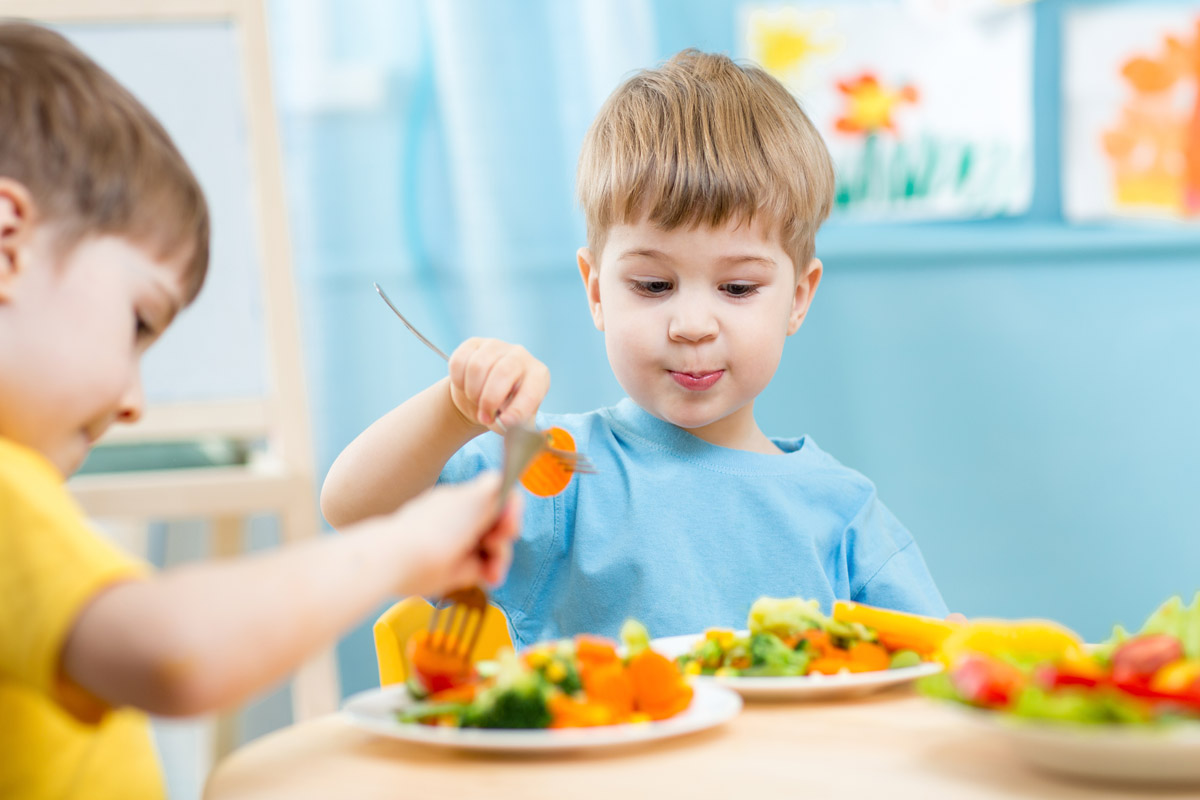We all know preschoolers love being the boss, and wanting to control their food is just another developmental milestone that we as parents have to navigate. It’s almost a right of passage for your child to go through the ‘beige’ phase!
A preschooler’s diet should be filled with a variety of foods from each of the 5 food groups to fuel this stage of massive physical and emotional growth, but we know getting them to eat what’s good for them can be easier said than done. And it’s not just food that’s important, it’s also their eating environment that can help them play, learn and explore too.
So how do you get your child to try new foods and develop healthy eating habits? Accredited Practising Dietitian Teri Lichtenstein has some great advice.
From cookies to dinner
The best way to get young kids eating a healthy diet is through repeated exposure to a variety of foods from all 5 food groups.
While many parents focus on making cookies and muffins with young preschoolers, it's also important to include them in cooking the family meals from an early age.
You can pick a task that suits their ability, like draining or stirring, podding beans, or chopping soft foods like avocado with a butter knife. They’ll love the responsibility, the opportunity to touch, taste and ask questions and are more likely to try something they helped prepare.
There’s no need to ‘teach’ nutrition at this age beyond these interactive experiences that will help them feeling comfortable and confident in the kitchen.
Super powered snacks
With so many distractions in the world of a preschooler, it can be tricky to get them to sit still for long enough to eat a full meal.
Offering them wholesome and nutritious snacks can help take the pressure off main meals and maximise variety. Fresh fruit and veggie sticks are great options and can be served with hummus or peanut butter for some added protein. To add further diversity into their diet and provide opportunities for them to get involved, try making these child-friendly muesli bars or sweet potato pikelets.
The dreaded fussy eating years
“Yuck, I’m not eating that!” is an all-too-common phrase at dinner tables with preschoolers and can make meal times feel really stressful. This rejection, or fear of unknown foods is a studied phenomenon known as ‘neophobia’, that tends to peak between 2 and 6 years old.
Try some of these tips to help you and your child feel more confident and comfortable with food:
- Change up textures – It’s more common for kids to dislike the texture of certain veggies than the taste. So, if you normally cook your carrots by boiling them, try roasting, finely chopping, or shaving them with a peeler instead.
- Offer a tasting plate – Serve a selection of familiar foods on a plate with new foods to try. Or try a ‘learning bowl’ with new foods alongside their ‘safe’ foods they already eat and enjoy.
- Cut the tension – As a parent try to ignore the behaviour as much as possible and don’t put pressure on your child to eat. Research shows that this pressure can worsen fussy eating and negatively impact their relationship with food in the long term. Learn why messy mealtimes are a parenting win.
- Repeat, repeat, repeat – Studies show that it can take as many as 10 exposures to a food for a fussy child to try eating it, so don’t give up. Continue to serve these foods and make sure you are a healthy role model.
- Share responsibilities – Try the Satter Division of Responsibility where the adult takes the lead on providing and selecting foods but the child is trusted with deciding how much to eat. This method reduces stress and helps your preschooler build confidence around eating and understanding hunger and fullness cues. It also helps you to gain a better understanding of how much food to offer.
- Average it out – Remember that a healthy child will not starve if they refuse one meal or snack. This missed meal is unlikely to have a significant impact on their overall health.
- See an expert - If you are concerned that fussy eating may be related to a separate health condition, or is negatively affecting your preschooler's growth and development, it may be a good idea to check in with your GP or Accredited Practising Dietitian (APD).
Remember that you're not just feeding your preschooler, you're nurturing their love for exploration, learning, and healthy choices. It's a marathon, not a sprint, but every small step you take today contributes to a lifetime of good eating habits. Trust in the process, embrace the joy of cooking and eating together, and let your child's natural curiosity guide them toward a healthy relationship with food.
https://www.sanitarium.com/au/health-nutrition/ask-a-dietitian/food-fundamentals-for-preschoolers





